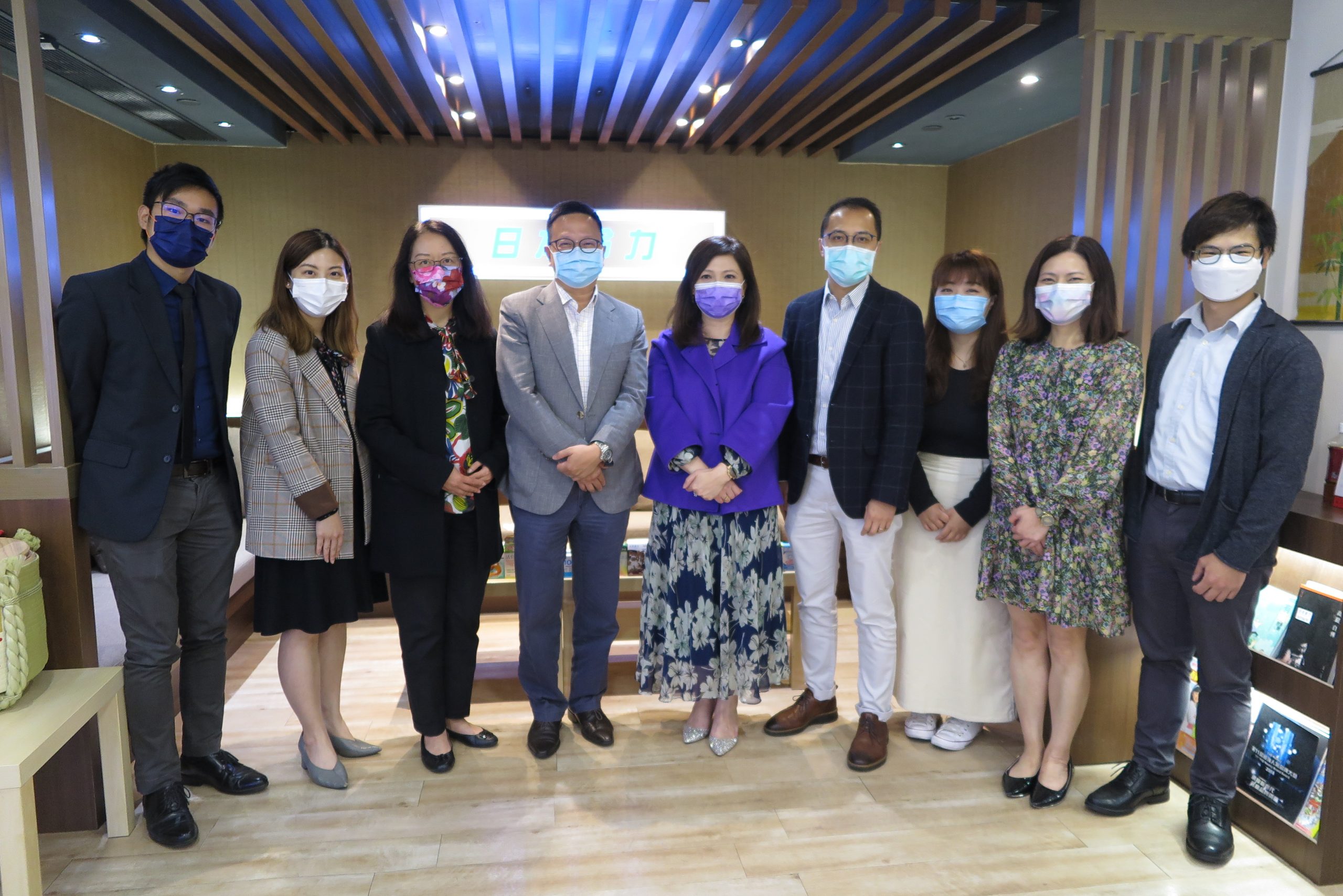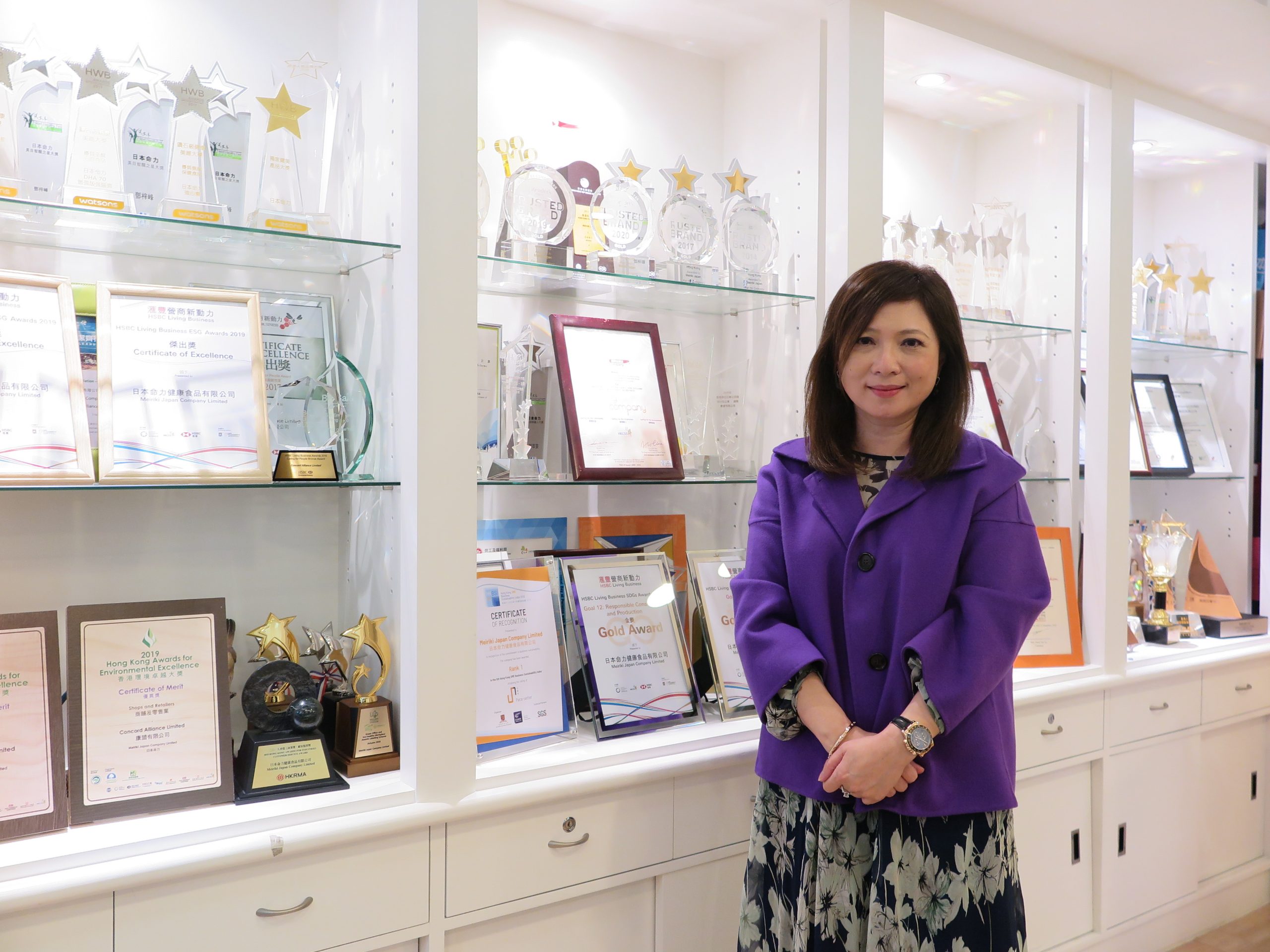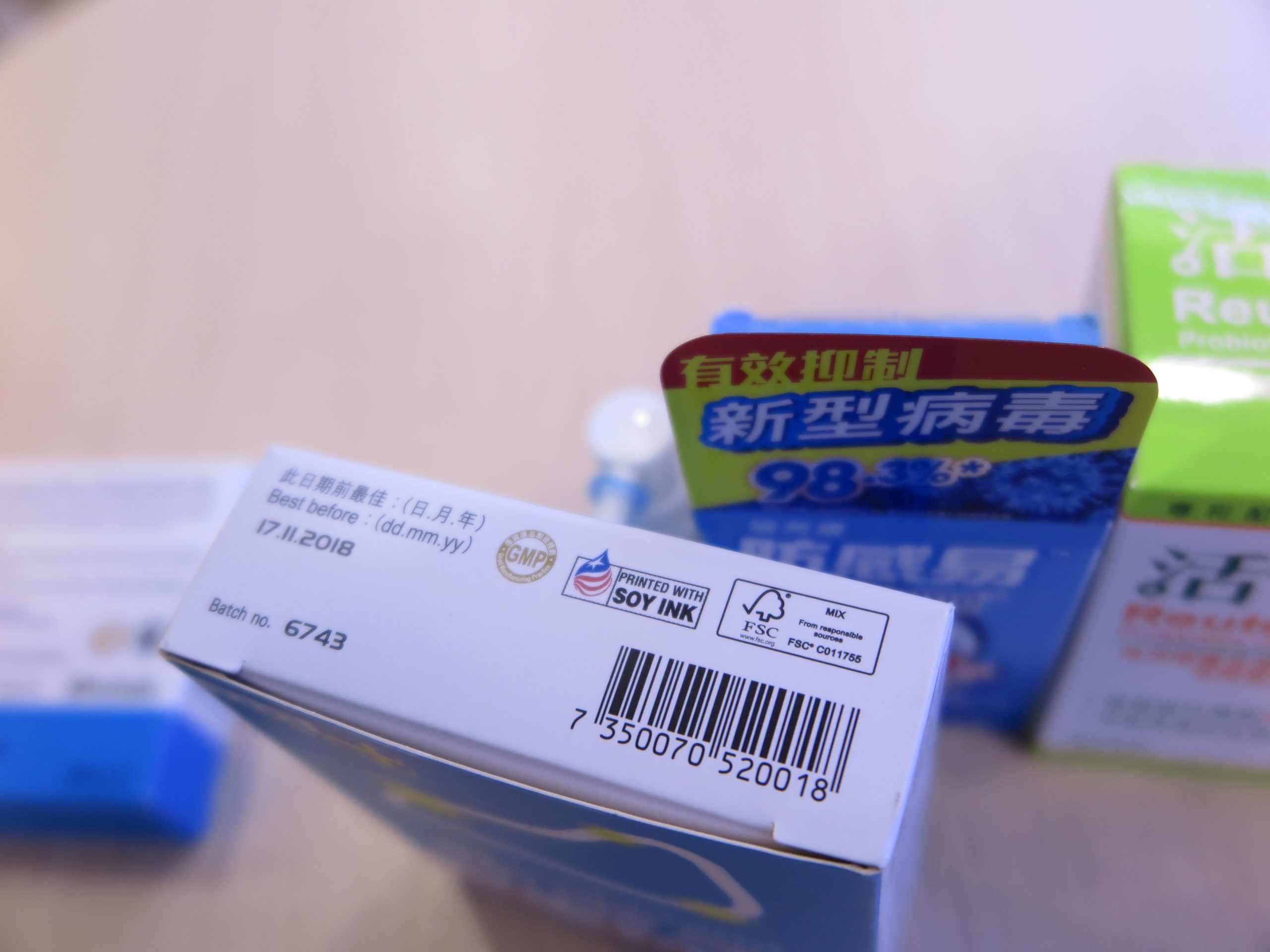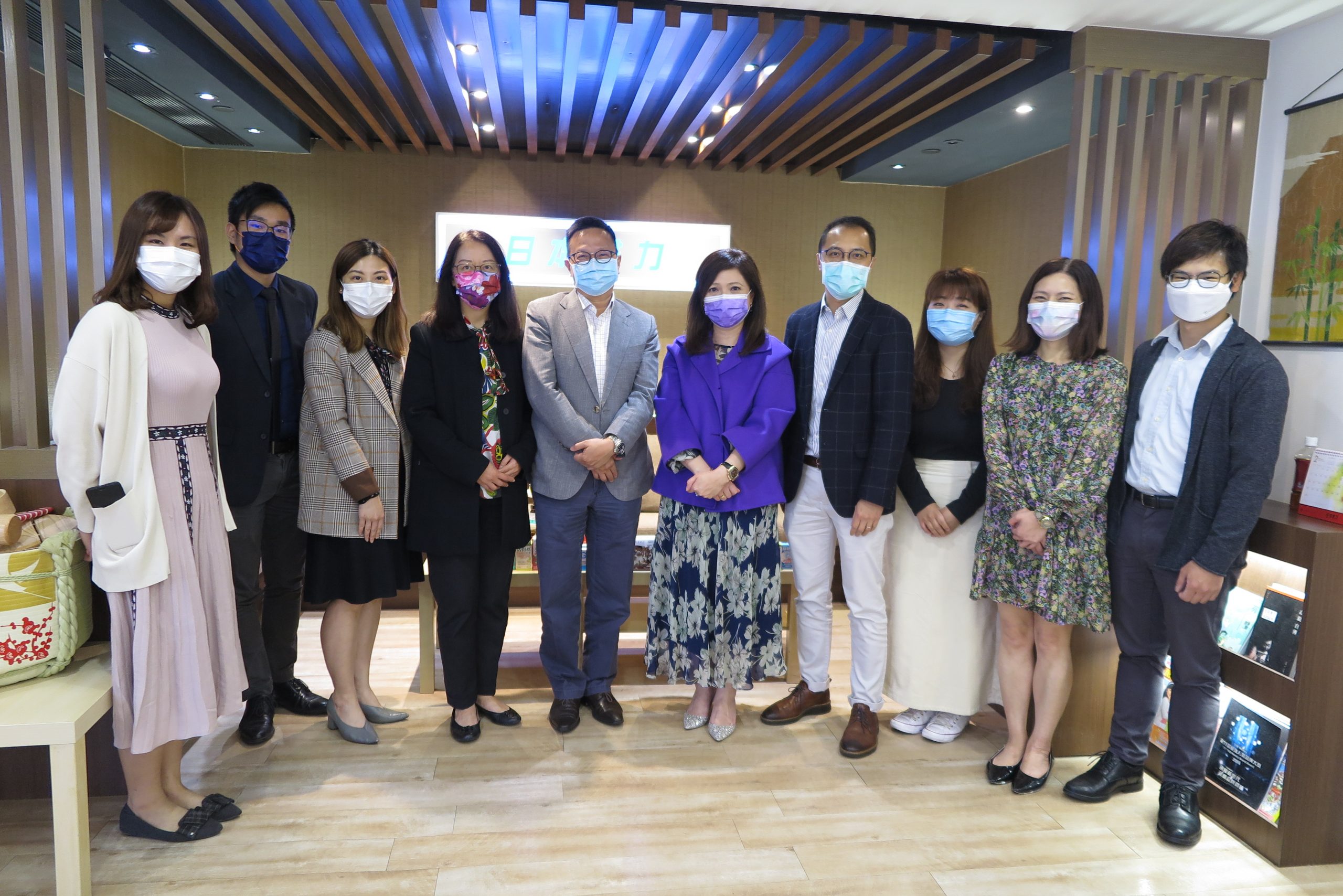Meiriki Japan: The People-Oriented Management Philosophy
Company Portfolio | Read the full Best Practice Case below
When the sun is setting in Hong Kong, many office workers are still keeping their noses to the grindstone; but for Meiriki Japan, a healthcare supplement retailer, it’s a different story. During the interview, co-founder of the company, Ophelia Lin, pointed to the clock and said with a smile: “When the minute hand moves across 59, our employees begin packing and get ready to head home.”. Meiriki Japan has been rooted in Hong Kong since 1997 and has been promoting a “people-oriented” workplace culture. Ophelia believes that if the company treats its employees well, one day they will inspire others. This does not only benefit employees’ development, but also the company. The healthcare supplement company also implements other policies that aspire to achieve a working model centering on three United Nations Sustainable Development Goals (UNSDGs) of “decent work and economic growth”, “responsible consumption and production models”, and “no poverty.”
Implementing People-oriented Policies to Consolidate The Company’s Unity
The local business sector has been having more conversations on sustainable development in recent years. Ophelia chuckled and said that in more than 20 years ago, she had no idea about what corporate social responsibility (CSR) or sustainable development is.
“The company has held a people-oriented vision since the very beginning, just that we did not know that we were promoting sustainability, or carrying out CSR.”.
Their NO-OT (no overtime) approach stems from the management’s understanding that employees need to be well-rested if they are to devote wholeheartedly to the company. In terms of their human resources policies, Meiriki always puts their staff first to unite the team’s potential. At the height of the pandemic last year, many companies had their employees either take unpaid leave or be laid off to reduce expenses during the economic recession. However, Meiriki took the opposite approach. The health food company implemented the “Three-Nos” policy: “No dismissal, no pay cuts, and no unpaid leave”. “If my family’s income dropped drastically, I would panic too. So putting myself in their shoes, I would never treat my staff like this,” said Ophelia.
In fact, the Meiriki team has a lower employee turnover rate when compared to other small to medium-sized enterprises (SMEs). Ophelia mentioned from 2018 to 2020, their turnover rate managed to stay at around 10%, and even lowered to 6% in 2020, which was lower than the rest of the retail industry by 10%. With some employees staying for over a decade, it is undoubtedly evidence of a strong and united team. In the wake of the pandemic, Hong Kong shut down its borders, causing a drop in sales due to a great loss of overseas customers, and detrimentally affecting their commission-based paid employees. Store employees were frustrated and their motivations were low, so the management visited storefronts to help bring encouragement, and even gave out extra bonuses: “Although it was not a lot of money, it can at least incentivise them a bit.”.
For SMEs, which are usually lacking in manpower and resources, fulfilling CSR and promoting sustainable development seems out of reach. However, Ophelia is convinced that this is a long-term investment: it might be difficult for the management to immediately see returns, yet when crises hit, employees are more willing to fully immerse themselves into the company and overcome the hurdles with us. Taking COVID-19 as an example, she pointed out that under the pandemic, the company’s business did not plummet but instead rose, and employees had generally no complaints. As shown by the current crisis, only when a company is capable of retaining talents can it have the capital to work collectively and sustain.
Establishing a Sustainability Committee to Benefit From The Hive Mind
Several years ago, Ophelia attended a sustainable development course at the University of Cambridge and realised that it had become a major global trend. Bringing the idea back to Hong Kong, she set up a 12-person sustainability committee within the company to promote related policies. The committee aims to analyse current governance policy data and use the findings to map out future development directions. The members come from eight departments, from accounting managers and HR officers to admins, they all have equal rights to voice out their opinions. The committee holds regular meetings quarterly, to work on sustainability development. Members would take part in sustainability training, and give back to their respective departments by proposing new directions before sharing them with the committee board. At the meetings, they will also share the results and reflect on the effectiveness of recently introduced measures, and record their working progress with the aid of data. For example, in the past Lunar New Year, they analysed the number of recyclables, considering whether follow-up work was needed. Additionally, they also use the time to brainstorm ideas and come up with new goals. Ophelia demonstrated with an example: “Now we wish to add more sustainable elements to our product development. So I asked the committee members to meet with the factories to gather more information, and investigate whether there are more environmentally-friendly and innovative packaging designs and technologies around the world so that we can bring these ideas back to the meeting.”.
Ophelia believes that other SMEs can also benefit from this cross-departmental cooperation model – it does not necessarily need twelve members, but it should recruit talents from all major disciplines so that the voice of colleagues can be heard.
Since establishing this committee, members have put forth many beneficial policies. For example, in recent years, Meiriki has committed to reducing carbon emissions by signing a low-carbon charter formulated by the Business Environment Council in July 2020, in response to the “Paris Agreement” under the “United Nations Framework Convention on Climate Change” (UNFCCC). The company has also established a 5-year and 10-year mid-to-long-term plan starting in 2019, and is expected to reduce carbon emissions by 20% within 5 years, and 30% within 10 years.
Never Underestimate SMEs’ Influence
In addition to the company’s internal low-carbon policies, Meiriki Japan has incorporated the ongoing developmental goal of combating climate change into their main marketing direction. As the company is mainly engaged in health food sales, the team has paid extra effort in product packaging. Some food packaging uses biodegradable plastic materials, while their papers and printings used are internationally certified by the Forest Stewardship Council (FSC) and American Soybean Association. There are also strict regulations on the selection of raw materials. The company’s appointed palm oil supplier has joined the Roundtable on Sustainable Palm Oil (RSPO) and promised to monitor deforestation to ensure palm oil production can be done sustainably. As for products using seaweed calcium and cod ingredients, they are complying with the principles of sustainable production and different international environmental conservation standards. Many other products including Reuteri Probiotics, LeverRen, and Ca Easy have also obtained high-quality pharmaceutical manufacturing specifications.
When dealing with customer and supplier relationships, SMEs definitely have a lesser say than large companies. Sometimes owners feel clueless on where to start, but Ophelia has proven through her own experience that no matter how small a company is, they do have the ability to influence the sustainability management of large corporates. Meiriki has been collaborating with a Swedish company to distribute its health products. One time when Ophelia was having dinner with the company’s CEO, she proposed to them the idea of switching to biodegradable packaging materials. She laughed and remarked that it was a risky move: “I am only a small retailer, and they can replace me at any time”. However, she believes that sustainable development is the right direction for global businesses in the future, and is definitely worth promoting it to larger brands. She recalled that the CEO was not swayed initially, but that did not stop Ophelia. Instead, she kept on casually mentioning related topics, hoping that they could further reconsider. She mentioned that consumers’ environmental awareness has risen over time, and has become more conscious in choosing brands, reinforcing that the Swedish company should consider making timely changes to adapt to the market’s changing demands. When Ophelia met with the CEO a few months later, the Swedish company had hired a dedicated sustainability manager to plan out relevant measures and put in place a schedule to make the switch over to environmentally friendly packaging. She therefore encouraged her peers in the industry:
“Don’t give up even when you doubt you can get any results. SMEs can play a role in this collaborative effort.”.
For Meiriki Japan, sustainable development has long been a cornerstone of corporate governance. In the future, Ophelia hopes to further promote sustainable development through the efforts from the Government, universities, and other business associations, to make sustainability attainable. “Hong Kong companies can do better. We can do it!”. She believes that when more people recognise the importance of it and make relevant investments, the current cost premiums can be reduced, consequently minimising the resistance faced by SMEs.
During the interview, Ophelia gazed around her trophy-filled office. With pride, she recalled that the company has won different competitions, with the business on the rise. She explained that these are the aggregated results of a long-term management strategy while taking a sip of tea: “It takes a long time to build trust, and it’s universally crucial.”. She believes that the three principles of “transparency, respect, and trust” are key. The management level should always remind themselves to be curious about the world, to actively innovate, and increase their sensitivity towards market developments. Ophelia took the chance to remind all SMEs owners not to underestimate the significance of internal relationships. Employees are the most valuable asset that is worth the investment: “After all, the soul of the company lies in its people.”.









